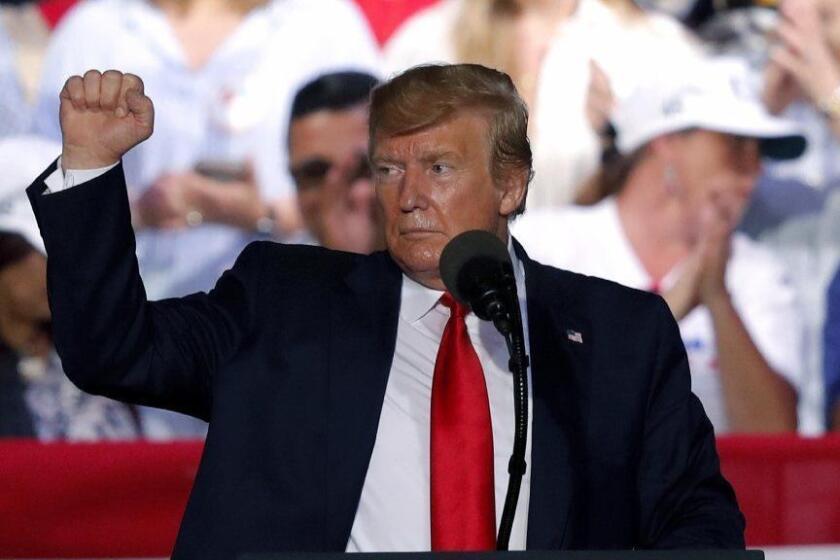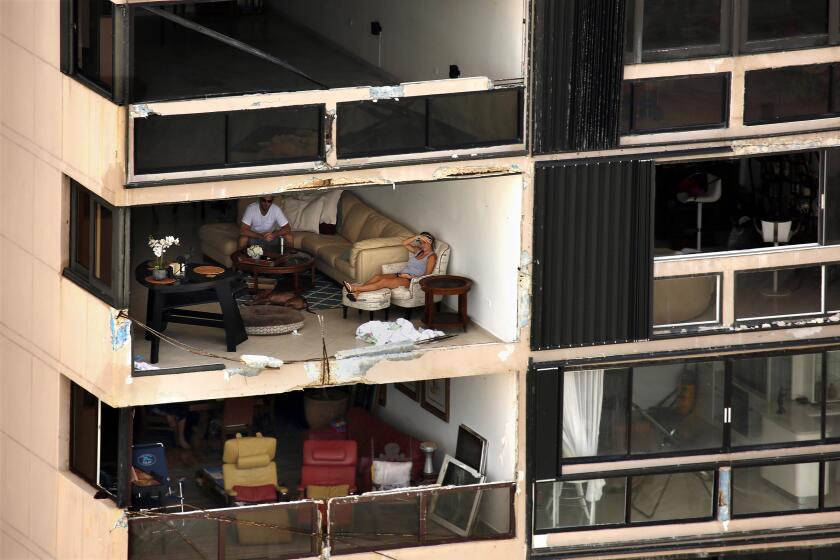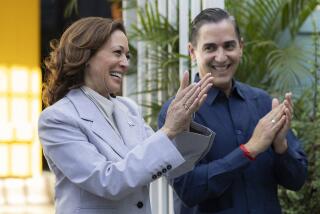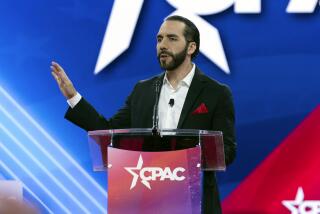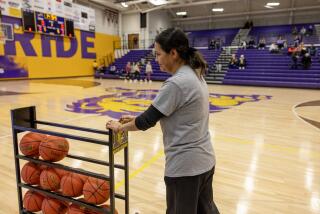Trump dissed Puerto Rico after Hurricane Maria. Advocates ask what Democratic candidates will do
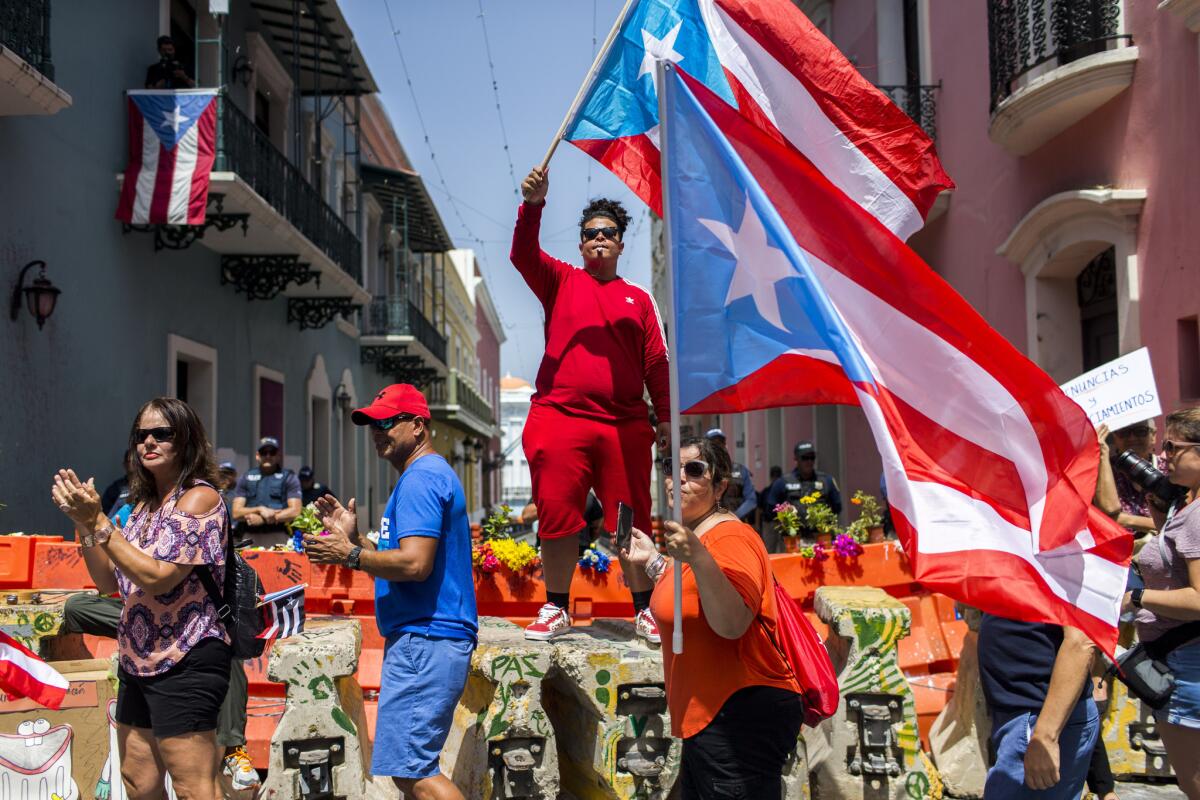
Julián Castro chose Puerto Rico for his first campaign stop. Tulsi Gabbard visited the island to support protesters as they called for the island governor’s removal. Amy Klobuchar stopped by a San Juan school damaged by Hurricane Maria.
Many Democratic presidential candidates have visited the U.S. territory or offered support on social media as the island struggles to recover from political turmoil and the aftermath of a hurricane that killed thousands and displaced many more. Puerto Rican advocates say they appreciate the attention, but they want more.
They’re pushing candidates to release comprehensive policy plans to lift the island out of poverty and support its people as President Trump continues to divert federal aid away from it.
Latino voters are expected to become the largest minority voting bloc next year, and Puerto Ricans could be a force in key states such as Florida and Ohio, where many evacuees settled. The U.S. citizens can vote in presidential primary elections whether they live in the states or on the island; those in the states can also vote in the general election.
A candidate who wants Puerto Rican voters to turn out for the primary or the general election should invest in the community early, said Daniel Ortiz, an organizer in Cleveland.
“That sort of late-in-the-game pivot to say, ‘We hear you and your issues in the community,’ isn’t adequate,” Ortiz said. “We’re looking for people who are going to be in relationship with us.”
This week marks the second anniversary of Hurricane Maria devastating the island and displacing tens of thousands of people. Even before the storm hit, Puerto Rico was struggling from a debt crisis made worse by lawmakers who terminated a federal tax break that attracted manufacturers to the island. Because of its status as a U.S. territory, Puerto Rico could not climb out of a cycle of debt like a state could, and before Maria, it had amassed some $70 billion in debt.
Erica Gonzalez, director of Power 4 Puerto Rico, a coalition of Puerto Rican organizations across the country, hopes candidates will remedy that, if elected. The coalition has reached out to campaigns with an open letter, co-signed by about 60 other groups, asking each to endorse a plan that would include, among other things, debt relief for the island and more federal resources to rebuild its infrastructure and economy.
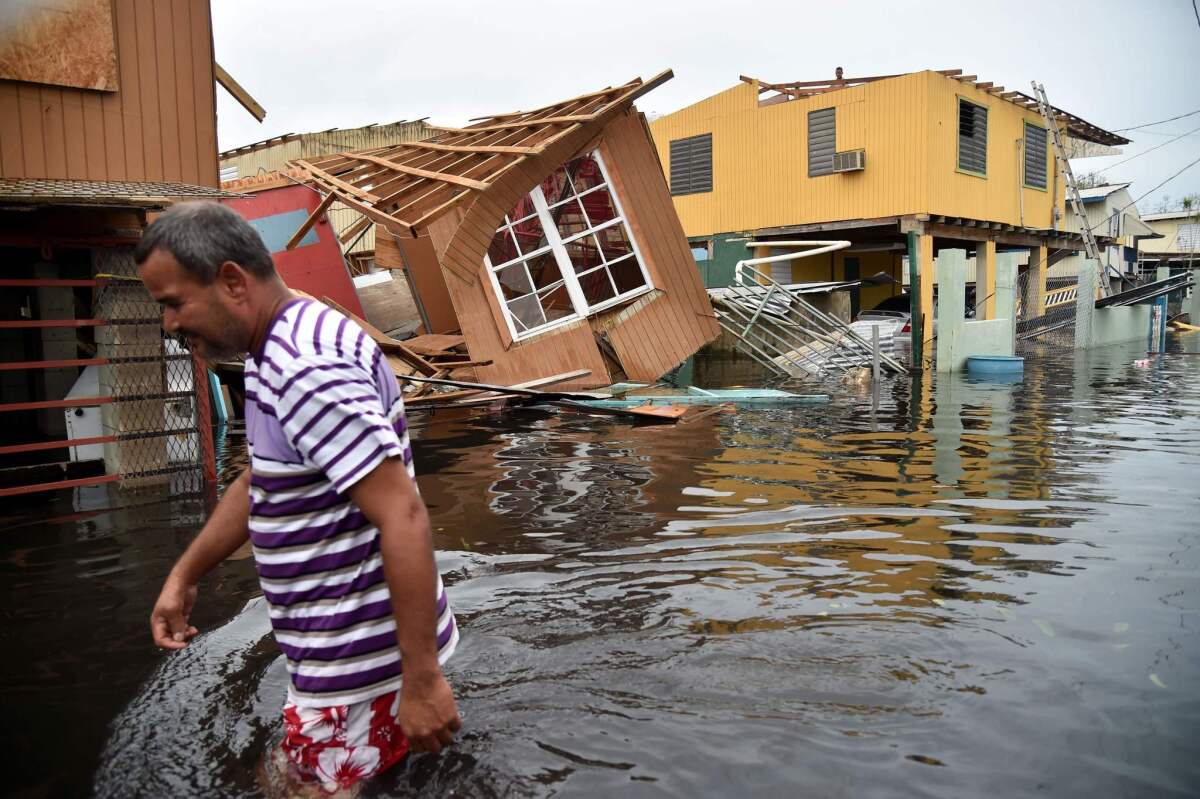
“We are tracking what [candidates] are saying or not saying, and at some point we will present that. And the Puerto Rican electorate, whether it’s in Ohio, Pennsylvania or Florida, or North Carolina, is going to have a chance to take a look at that and shop and compare,” Gonzalez said. “We’re not looking for a piecemeal approach.”
Democrats hoped to score major wins in Florida in 2018, with an influx of new voters from Puerto Rico fuming over President Trump’s tepid response to a ravaging hurricane and a diverse Latino population alarmed at his polarizing immigration policies.
Federico de Jesús, a senior advisor to the coalition, pointed out that some of the senators competing for the Democratic nomination, including Cory Booker of New Jersey and Kamala Harris of California, have supported measures to boost relief efforts for Puerto Rico. But many candidates have yet to release plans as part of their 2020 campaign, including former Vice President Joe Biden, the front-runner.
“We haven’t seen the level of detail that we would have expected at this time,” De Jesús said.
Some candidates, including Massachusetts Sen. Elizabeth Warren and Vermont Sen. Bernie Sanders, both of whom introduced legislation post-Hurricane Maria, have issued policies on how they plan to help the island recover. Warren proposes debt relief for the island, which advocates say is a good starting point. Castro, the former HUD secretary, has yet to release a plan, but advocates praised him for prioritizing Puerto Rico as his first campaign stop.
New York City Mayor Bill de Blasio, who this month toured a San Juan neighborhood damaged by Hurricane Maria, recently released a comprehensive plan. That’s a good sign that pushing candidates to focus on Puerto Rico is working, said Mayra Macías, executive director of the Latino Victory Project, which helped launch Power 4 Puerto Rico.
“That’s really good political leverage for Power 4 Puerto Rico to kind of call out that some of the folks who are vying for the Latino vote … have not put out their comprehensive proposals,” she said.
But the island has largely been sidelined from the national stage in the 2020 election cycle. Democratic candidates have not been asked a question about Puerto Rico at any of the three debates. The first debate, in June, was held in Florida, where a third of eligible Latino voters in the state are Puerto Rican, according to the Pew Research Center. The second debate in July came about a week after Puerto Rican Gov. Ricardo Rosselló resigned following widespread demonstrations.
For two weeks, the people on the island had marched, chanted and danced in protest after private group chat messages revealed by a local news organization showed Rosselló and aides made sexist comments about women and joked about victims’ bodies accumulating after Hurricane Maria.
The release of group-chat messages from the governor and other leaders revives Puerto Ricans’ painful memories from the devastating 2017 storm.
Natalia Giraldo-Santiago, who helped organize events in Houston to support the protest, said she is disappointed that Democrats aren’t prioritizing the needs of the island and its people while campaigning against Trump.
“I don’t think Democrats are really ready to fight this negative view of Puerto Ricans” that the president is spreading, she said.
Trump, who engaged in a public spat with the mayor of the capital, San Juan, in the immediate aftermath of Hurricane Maria, has been criticized for what many consider as treating Puerto Ricans as second-class citizens. The Defense Department announced this month it was diverting $400 million from military construction projects in Puerto Rico to put toward building a wall at the southern U.S. border.
President Trump on Thursday falsely accused Democrats of inflating Puerto Rico’s death toll from hurricanes Maria and Irma, insisting the total is much smaller than various studies have found — a contention that provoked widespread outrage even as the East Coast braced for a massive new storm.
After the hurricane, many evacuees settled in election battleground states, including Florida, Ohio and Pennsylvania, according to a 2018 report by the Center for Puerto Rican Studies at Hunter College in New York. Organizers in those states are hoping candidates don’t wait until the eleventh hour to mobilize Puerto Rican voters.
Marcos Vilar, executive director of Alianza for Progress, in Orlando, Fla., said some candidates have reached out to the state’s Puerto Rican community. They need to, he said, if Democrats hope to capture Florida, which Trump won in 2016 by 1.2 percentage points. The state has a large Cuban population — 1.4 million — that has historically voted Republican. But the Puerto Rican population is about 1 million, according to the U.S. Census Bureau.
Vilar noted that South Bend, Ind., Mayor Pete Buttigieg asked to meet with community leaders in Orlando during a campaign visit last month. “That’s the kind of attention that all of the candidates should be giving to our community,” Vilar said.
More to Read
Get the L.A. Times Politics newsletter
Deeply reported insights into legislation, politics and policy from Sacramento, Washington and beyond. In your inbox three times per week.
You may occasionally receive promotional content from the Los Angeles Times.
